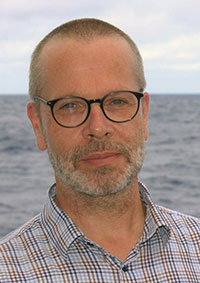05-MAG-AP2 Petrological Methods in Ore Geology
Representative Wolfgang Bach
The module covers theoretical, petrographic and laboratory techniques applied to study rock- and ore deposit-forming processes in nature. The interactions between solids and fluids will be a specific focus in this module. Microscopic and spectroscopic techniques for mineral identification and analyses as well as computational methods for solving problems in ore geology will be introduced.
characterize chemical and isotopic compositions of rocks and minerals using instrumental analytics
calculate by means of dedicated computer programs PTX-phase relations and solubility of elements in natural fluids
identify ore and gangue minerals using a petrographic microscope and recognize phase assemblages and parageneses
acquire an in-dept understanding of physico-chemical processes in sources and traps of common metal deposits
!!! Students of the MMCM program will have to be able to demonstrate a basic knowledge of mineralogical/geochemical concepts and a vested interest in Earth Sciences. They need to pass an oral exam in the first week of the semester before they can enroll in this module !!!
Course Type 1: Lecture, Exercise (L+E) 4.0 SWS ( 56.0 h)
Tutorial(s): -
Workload:56.0 h presence time
72.0 h self-study
52.0 h exam workload
180 h total workload
module exam
exam elements: 1
SL: 0
100 % assignment
Anderson, G. (2005) Thermodynamics of natural systems, Cambridge University Press
Robb, I. (2005) Introduction to ore-forming processes, Blackwell Scientific Publications, London
Basic Data
Master Applied Geosciences
Module Type
Compulsory
First Year of Study
Offering Departement
FB5 Geosciences
Wintersemester
Course LanguageGerman and English
6 CP
4 SWS
Contact

Contact
Prof. Dr. Wolfgang Bach
GEO 5340
 uni-bremen.de
uni-bremen.deContact

Contact
Prof. Dr. Wolfgang Bach
GEO 5340
 uni-bremen.de
uni-bremen.de
